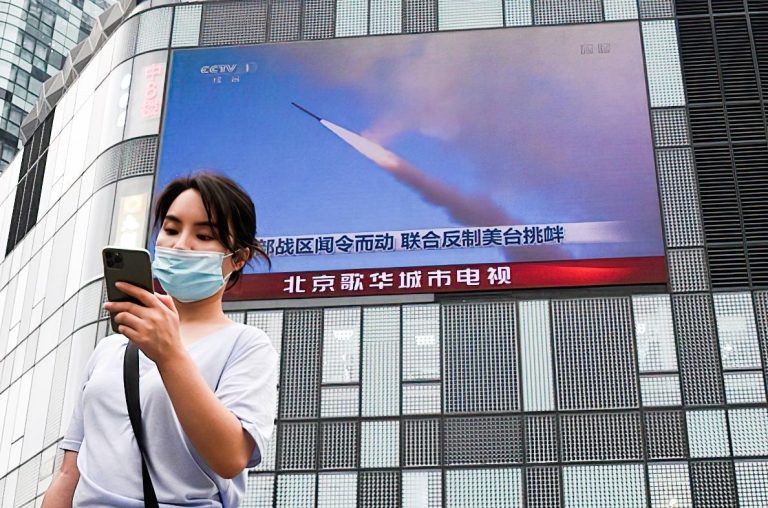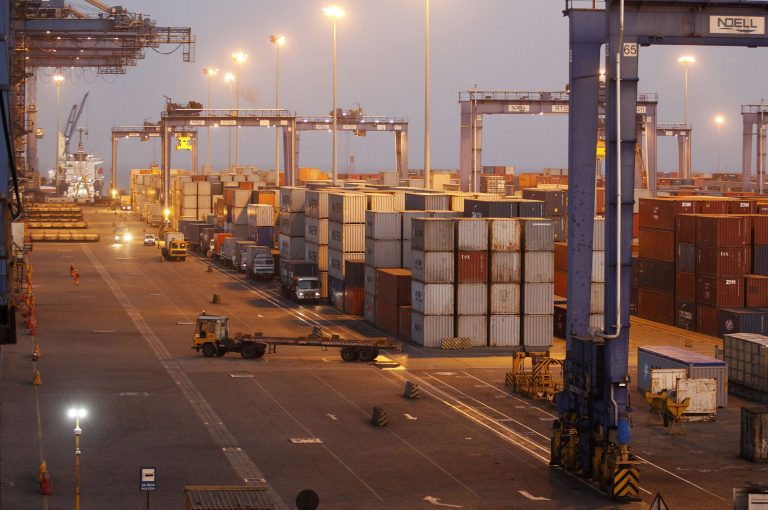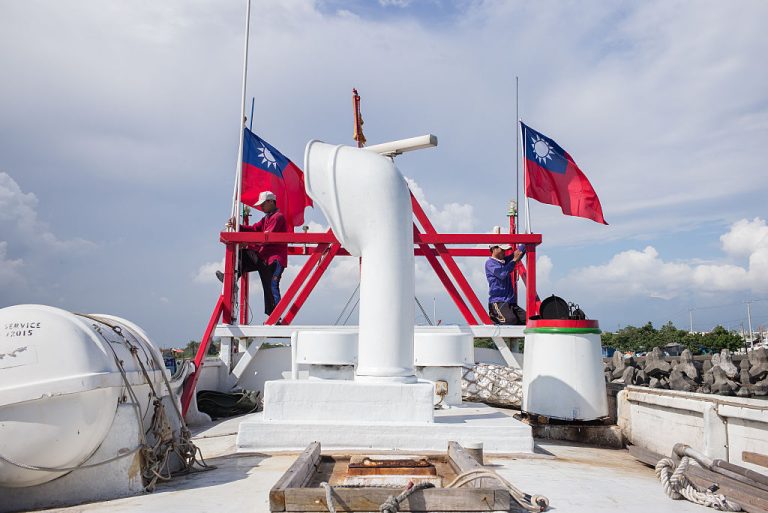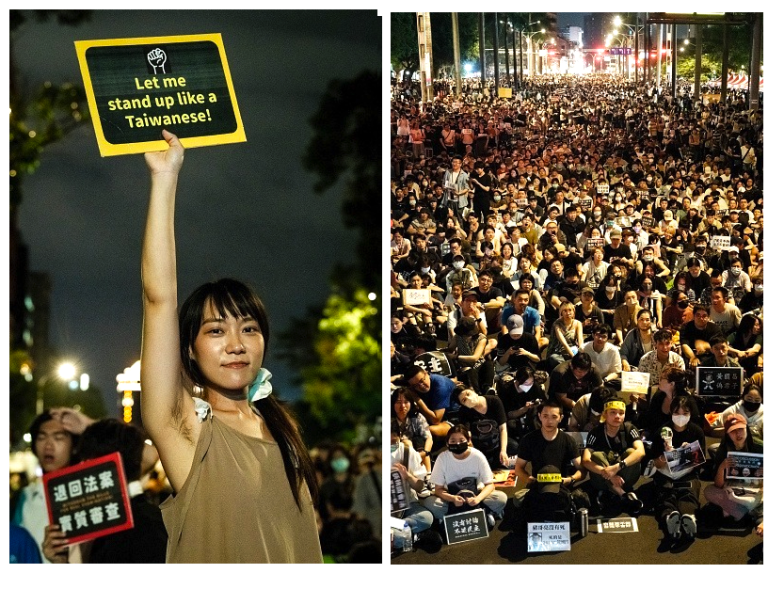Commentary by Cao Changqing
Following the outbreak of the Gaza military conflict on Oct. 7, 2023, some Chinese-language commentaries have again likened Palestine or Gaza to Taiwan, in addition to previous comparisons of Taiwan with Ukraine. These analogies are incorrect. Such comparisons lead to mistaken understandings and decisions regarding Taiwan’s current situation and future.
There is no established Palestinian state
Taiwan, as the Republic of China (ROC), is a country with its own territory, customs, currency, laws, and a democratic system for electing its national leaders. It was established on mainland China 38 years before the founding of the communist People’s Republic of China (PRC). The ROC currently administers Taiwan, Penghu, Kinmen, and Matsu.
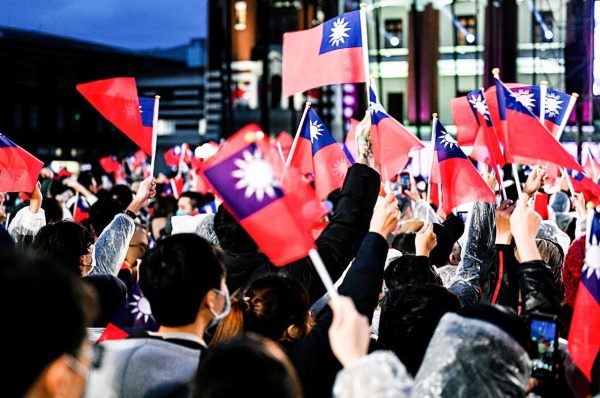
Palestine, meanwhile, has never been a recognized state. Although the United Nations passed Resolution 181 in 1947, approving the establishment of separate states for Israel and Palestine and allocating land to each, Israel subsequently established its state in accordance with this resolution, but Palestine did not. The primary responsibility for this lies with the Palestinian leadership.
After World War II, the United Nations proposed a resolution for the establishment of separate states for Palestine and Israel. This resolution was based on a proposal put forward by Hu Shih-tse, then Deputy Secretary-General of the United Nations and a diplomat from the Republic of China, after leading a delegation to the Middle East. The resolution was passed with 33 votes in favor, 13 against (with 10 abstentions) by the more than fifty member states of the United Nations at the time.
Success
You are now signed up for our newsletter
Success
Check your email to complete sign up
The Arab countries that voted against it believed the resolution was unreasonable, arguing that the land allocated to Israel was disproportionately large relative to the population. However, the resolution had its merits: firstly, it was formulated under a blueprint proposed following an inspection by the delegation led by the Chinese diplomat Hu Shih-tse, not by the Jewish people themselves; secondly, at that time, Jewish people were dispersed around the world, and their population should not have been calculated based solely on those living in the small area of Israel. The resolution took into consideration the fact that many Jews globally would return to their ancestral homeland in Israel after its establishment. Thus, the resolution was fundamentally reasonable.
Even if Hu’s proposal had its faults, there was no justification for the five neighboring Arab countries (Egypt, Jordan, Syria, Iraq, Lebanon) and Palestinian guerrillas to invade Israel the day after its establishment, aiming to obliterate this newly formed nation. Fortunately, Israel, despite being outnumbered, managed to defeat the invasion of these five countries and survived. However, this war resulted in 700,000 Palestinian refugees. Therefore, the initial Palestinian refugee problem was caused by the Arab countries’ invasion of Israel.

The five-state invasion of Israel failed, but Egypt, the largest country in the Middle East, seized the opportunity to occupy Gaza, one of the territories designated by the U.N. for the establishment of a Palestinian state. Jordan also seized the opportunity to occupy the West Bank, another territory intended for a sovereign Palestine.
Therefore, the initial division of Palestinian lands intended for statehood was not by Israel, but by Arab countries. This occupation and division were also key reasons why Palestine could not establish a state, as their lands were under foreign control.
Taiwan is not a terrorist base
A second difference between Palestine and Taiwan is that Taiwan has never been a base for terrorist attacks against mainland China. Since the first Middle East War in 1948 (when five countries invaded Israel), Egypt occupied Gaza for 19 years. It wasn’t until the third Middle East War in 1967, when Egypt and other countries were again defeated, that Israel took control of Gaza to ensure that it would no longer be used as a frontline base for future invasions into Israel.
By 1994, Israel gradually relinquished control of Gaza, and by 2005, withdrew all its troops, returning it to the Palestinian people. However, the terrorist group Hamas again turned Gaza into a staging ground against Israel, constructing an extensive network of tunnels spanning 500 kilometers, and launching rockets into Israel, causing civilian casualties.
Taiwan, on the other hand, has never launched terrorist attacks against the PRC. Even the Kuomintang’s previous policy of “retaking the mainland” was abandoned. Taiwan merely seeks self-preservation and hopes to promote peaceful cross-strait relations. This is entirely different from Palestine, especially Hamas, which aims to annihilate Israel.
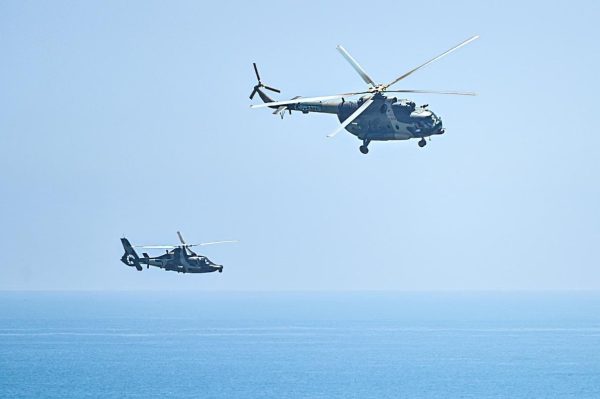
The third difference is that Taiwan is willing to recognize the existence of the PRC and has consistently expressed a desire to establish friendly or even diplomatic relations, which have been continuously rejected and viewed with hostility by the Chinese Communist Party. In contrast, Palestine, particularly Hamas, refuses to recognize the existence of Israel, adopting a policy of three ‘no’s: no recognition, no contact, no negotiation. This is the fundamental cause of the Israel-Palestine conflict, especially the current military conflict in Gaza.
A missed opportunity for peace
The United States was committed to facilitating negotiations and achieving reconciliation and peace between Palestine and Israel. In 2000, U.S. President Bill Clinton invited the Chairman of the Palestinian Liberation Organization, Yasser Arafat, and the Israeli prime minister to Camp David.
They nearly reached an agreement, as Israel made significant concessions to Palestine, offering all of Gaza and 95 percent of the West Bank, the two territories designated for a Palestinian state by a United Nations resolution. Since Israel had established some settlements in the West Bank, they were willing to compensate for the 5 percent with other territories in Israel.
Sovereignty and jurisdiction over the contentious and sensitive religious sites were also to be divided: the Palestinians would control the Temple Mount (a religious site in the Old City of Jerusalem, including the Al-Aqsa Mosque and the Dome of the Rock), and the Israelis would control the Western Wall and its surrounding holy sites. In addition, Israel agreed to the establishment of a Palestinian state.
International opinion generally regarded this as an unprecedentedly favorable peace agreement for Palestine, with major Arab states like Saudi Arabia also supporting it and urging Arafat to accept it quickly. At that time, Israel’s left-wing Labour Party was in power, and along with Clinton’s Democratic Party, which is also left-leaning, communication and compromise seemed more feasible. However, Arafat never signed the agreement, leading to its ultimate failure.
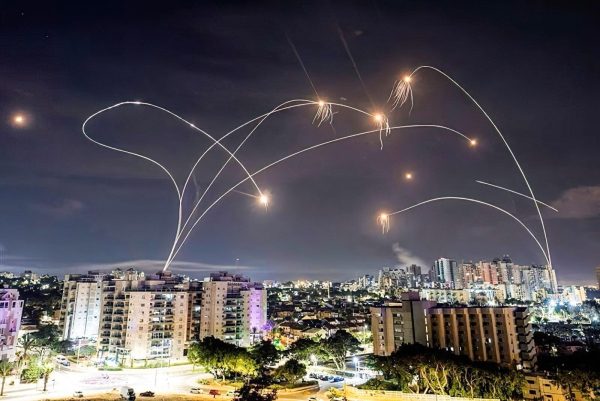
Following these events, Western author Dennis Ross wrote a book titled The Missing Peace, in which he determined that the main reason for the failure of the 2000 negotiations lay with Arafat. He essentially remained a guerrilla leader and could not become a national leader. If a Palestinian state were established, he would only be a minor leader in the Middle East. However, without a state, he symbolized the oppressed and persecuted for the entire Arab world, the Muslim world, including Mao Zedong’s China, gaining not only global fame but also significant personal benefits from donations received from various sources. After Arafat’s death, he left assets worth nearly US$10 billion to his wife.
Another reason for the breakdown of talks was Hamas’s absolute refusal to recognize Israel, completely rejecting negotiations and even the notion of a peace agreement. According to Mahmoud Abbas, the current President of Palestine, when Arafat was about to fly to the United States for the trilateral talks at Camp David with the U.S. and Israel, a Hamas leader told Arafat that if he signed a peace deal, he should not return, implying a threat to his life.
Therefore, whether for reasons of personal fame, position, or his own safety, Arafat refused this rare opportunity for a peace agreement. Shortly after that meeting, the right-wing Likud party came to power in Israel, believing that the left-wing government had made too many concessions to the Palestinians. Thus, that opportunity for a peace agreement was lost.

According to President Clinton’s memoirs, in his last conversation with Arafat just before leaving the presidency, Arafat praised Clinton as a great man. Clinton responded: “I am not a great man. I am a failure, and it’s you who have made me a failure.” This clearly expressed Clinton’s resentment towards Arafat for ultimately not signing the peace agreement.
Conclusion
Some Chinese-language opinions compare Taiwan to Palestine or Gaza mainly from a perspective of strength and weakness, arguing that compared to Israel, Palestine is the weaker party. Similarly, compared to China, Taiwan is also weaker. However, judging solely from the standpoint of strength and weakness is a flawed way of thinking. Why should the weaker party automatically be considered right or just? For instance, a criminal driving a battered car, when pursued by police in a top-notch vehicle with sophisticated equipment, is certainly the weaker party, but this does not make him right or just. The root of the Israel-Palestine conflict lies in the initial invasion of Israel by five countries, intending to eliminate Israel as a sovereign state and push it into the sea.
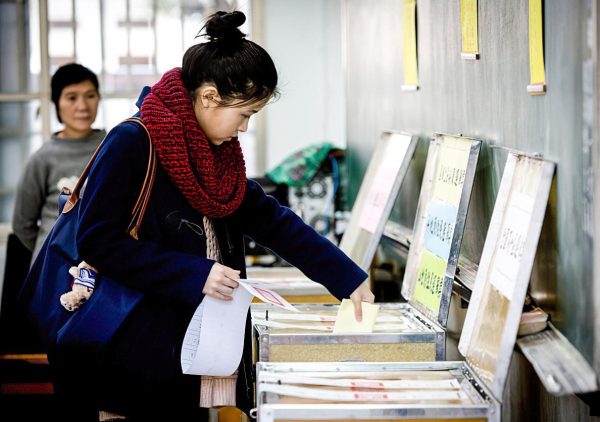
If one must draw a comparison, Taiwan’s situation is more similar to that of Israel. Israel is surrounded by numerous Arab nations, and the map clearly shows Israel, enveloped by the vast lands of the Arab countries in the Middle East, as small as a leaf. Moreover, before the Arab Spring, of the 22 member states in the Arab League, almost none were democratic.
Similarly, Taiwan, under the watchful eye of authoritarian Communist China with its vast land and population, also resembles a leaf floating in the ocean. Just like Israel, since the direct presidential elections in 1996, Taiwan has been a democratic nation for nearly the past thirty years. Thus, Taiwan is more comparable to Israel than to Palestine.
Cao Changqing is an Chinese-American writer and critic, as well as host of the video channel Changqing Forum (長青論壇). He has served as a columnist and speaker for Chinese-language media outlets such as Formosa Television, Voice of America, Radio Free Asia, and NTD Television.



